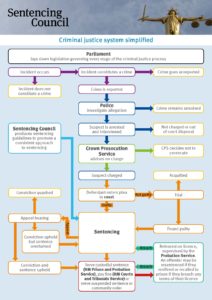Criminal justice – where does the Council fit?
The Sentencing Council sits at the centre of the criminal justice system. The Council develops guidelines that reflect the laws that are decided by Parliament and help the courts sentence offenders according to the maximum, and sometimes minimum sentences set by Parliament.
